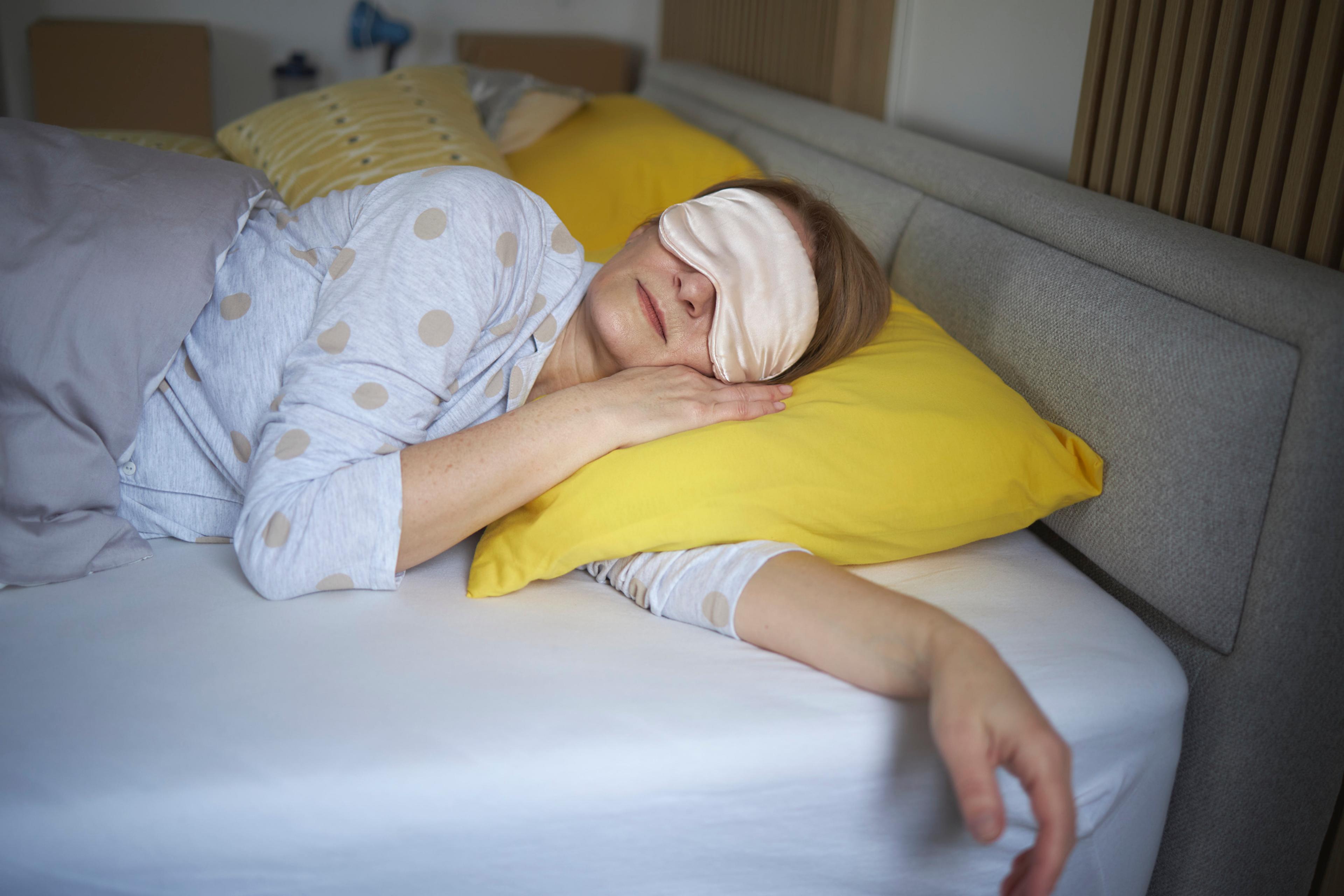Differences in Sleep Needs Between Men and Women

Dr. Amy Milewski, M.D.
| 4 min read
Dr. Amy Milewski, M.D., is vice president of clinica...

A recent survey showed women are nearly twice as likely (31%) as men (17%) to say they rarely or never wake up feeling refreshed and well-rested. Sex and gender contribute to sleep disparities between men and women, but societal norms and roles play a part as well. Women are more likely to have increased caregiving responsibilities, which can also disrupt sleep.
Quality sleep improves cognitive performance, mood and overall health and wellness, while a lack of good sleep raises the risk of many diseases and disorders. During Women’s Health Month, it’s important for women to recognize these disparities and take the necessary steps to get consistent, quality sleep.
What causes sleep issues for women?
Despite sleeping for approximately 11 more minutes per night than men, women are much more likely to report challenges falling and staying asleep than men.
Women are 40% more likely than men to develop insomnia, a condition that makes it difficult to fall asleep and stay asleep. Insomnia is the most common sleep disorder. People with insomnia often feel sluggish and have trouble functioning throughout the day. Women are at increased risk for being diagnosed with mental health conditions such as anxiety or depression compared to men, two behavioral health conditions that have a bidirectional relationship with insomnia.
Hormones are message-carrying chemicals that help cells and tissues perform important functions in the body. The following hormonal factors each influence sleep in a variety of ways.
- Menstruation: Women experience a hormonal shift during menstrual cycles, which can cause mood changes – such as anxiety and depression – and physical symptoms like cramping, bloating and tender breasts. These issues can disrupt sleep.
- Pregnancy and breastfeeding: Common pregnancy symptoms like nausea, an increased urge to urinate, incontinence, night sweats and general discomfort can also cause sleep disturbances. Researchers say these issues are especially likely during the first and third trimesters.
- Postpartum depression: Research estimates women with postpartum depression (PPD) sleep about 80 fewer minutes a night compared to women without PPD.
How can menopause affect sleep?
The hormonal changes that occur in the years leading up to menopause can contribute to several different sleep issues. Menopause occurs 12 months after a woman's last period, while perimenopause is the four-year period leading up to menopause.
Studies show women spend more time in the deep-sleep stage than men, but that begins to change during menopause, which can cause women to take longer to fall asleep and spend less time in deep sleep than men.
The following sleep problems can affect women during this period of life:
- Hot flashes and night sweats: Menopausal hot flashes are one of the most common causes of night sweats. As many as 80% of women experience hot flashes in perimenopause. Hot flashes can last for several years after menopause has occurred. For some women, these hot flashes are intense enough to disrupt sleep. Hormone replacement therapy, which supplements hormones lost during menopause, is considered effective in treating hot flashes.
- Snoring and sleep apnea: Postmenopausal women are at higher risk for developing obstructive sleep apnea, which occurs when airway muscles relax and temporarily impede breathing. This has the potential to wake a person up multiple times per night. Snoring also becomes more common during the menopausal transition. Researchers have found that when reproductive hormones decline, the soft tissues in the throat become more collapsible.
- Restless leg syndrome: More than half of post-menopausal women experience restless legs syndrome (RLS), a sleep disorder characterized by uncomfortable sensations in the legs felt while lying down, which triggers a strong urge to move the legs. Symptoms of RLS can lead to sleep disruptions, trouble falling or staying asleep and fatigue and daytime sleepiness.
Tips for better sleep
Women may perceive and report their sleep problems differently than men, which can lead to misdiagnosed or undiagnosed sleep disorders. An appointment should be scheduled with a primary care provider if one feels like they are not getting enough quality sleep.
Some lifestyle changes that can improve sleep quality include:
- Creating an optimal sleep environment that accounts for temperature and darkness
- Getting regular exercise during the day
- Going to bed and waking up at the same time each night, including on weekends
- Limiting alcohol intake and avoiding alcohol consumption late at night
- Limiting caffeine after noon
- Limiting screen time and disconnecting from devices up to two hours before bed
Amy McKenzie, M.D., is an associate chief medical officer with Blue Cross Blue Shield of Michigan. For more health tips and information visit MIBluesPerspectives.com.
Photo credit: Getty Images
Continue reading:





